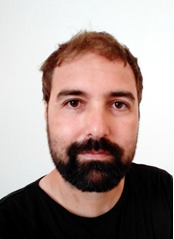Dr. Jose G. Maciá-Vicente, Goethe University Frankfurt am Main, Germany

About Dr. Jose G. Maciá-Vicente. He studies fungal ecology, with a main interest in the interactions and evolution of plant-symbiotic fungi. He obtained his PhD at the Plant Pathology laboratory of the University of Alicante in Spain, and then joined the U.S. Geological Survey in Seattle (U.S.A.) as a postdoctoral fellow. Since 2013, he is group leader at Goethe University Frankfurt am Main. His research has mainly focused on different aspects of the diversity and ecology of root endophytic fungi, although he has also carried out fundamental and applied research related to fungal taxonomy, biological control, and natural products discovery.
Topic of the plenary talk: Fungal endophytes: diversity and effects on plant hosts
Authors: José G. Maciá-Vicente
Abstract of the talkFungal endophytes dwell within the tissues of all plants without causing apparent harm to their hosts. They are ubiquitous and abundant in terrestrial ecosystems, encompassing an astounding phylogenetic and functional diversity that remains largely uncharted. In recent years, advances in DNA sequencing technologies and several large-scale samplings have boosted our knowledge about the main groups of endophytic fungi worldwide and the ecological factors influencing the structure of endophytic communities. Nevertheless, such knowledge remains limited and fragmentary, given the number of plant species never screened for endophytes and, more importantly, the large proportion of yet unexplored areas, of which tropical Africa is a good example. Even less known than their taxonomic diversity are the functional roles of endophytic fungi. They are often considered as important determinants of ecosystems’ function because of their potential impacts on plant health and productivity. In some instances, endophytes have been shown to be latent pathogens, or to provide benefits to their hosts via assistance in the uptake of nutrients or protection against environmental stress, which makes them prospective tools for agriculture. However, lack of knowledge about the ecology of the sheer majority of fungal endophytes limit the understanding of their place in ecosystems, as well as their exploitation. In my talk, I will give an overview of the topical knowledge on fungal endophytes’ diversity, ecology, and known interaction with plant hosts, and I will identify gaps in which further research is needed to understand their role in natural ecosystems. I will use examples from my research group, focused on fungal root endophytes, where we use a combination of field samplings and laboratory experiments, and of cultivation and high-throughput sequencing methods, to gain insight into the evolution and functional diversity of these fungi.
Key words: community ecology; fungal cultures; high-throughput sequencing; plant symbiosis
